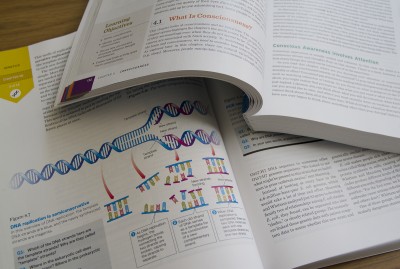
Massachusetts Gov. Charlie Baker and Lt. Gov. Karyn Polito announced Thursday a bipartisan plan to increase the affordability of higher education and encourage degree completion, according to a Thursday press release.
The plan, called the “Commonwealth Commitment,” awards eligible undergraduate students with a 10 percent rebate after each semester that they successfully complete, according to the press release. Participating students must study full-time and maintain a minimum GPA of 3.0.
Students participating in the program will earn an associate’s degree in a maximum of two and a half years before transferring to a state university or a Univeristy of Massachusetts campus to finish a baccalaureate degree, according to the release. The program will begin in the fall 2016 semester.
“Students who meet the requirements will, depending on the transfer pathway they choose, be able to realize an average savings of $5,090 off the cost of a baccalaureate degree,” the release stated. “The plan is the first agreement of its kind in the nation.”
The program collaborates with the Department of Higher Education’s MassTransfer program, which provides participating students with benefits such as tuition discounts, guaranteed admission into a state university and full credit transfer, according to the MassTransfer webpage.
Baker said in the release that the program will allow more students to receive a college education and enter the workforce.
“This program was designed to decrease the cost of a college degree and accelerate on-time completion for students across the Commonwealth, creating more opportunities and helping more people get into the workforce with the skills they need,” Baker said in the release. “The Commonwealth Commitment will make it even easier for students to go to school full-time and begin their careers with less debt.”
The press release stated that the program will not involve room and board discounts. However, students enrolled in dual-credit programs will be able to apply those credits to a “Commonwealth Commitment” degree.
Polito called the program a “win-win” and said in the press release that the program will help fill the growing demand for students pursuing science, technology, engineering and mathematics careers.
“Our hope is that through programs like the Commonwealth Commitment, not only will students get the benefit of a lower cost degree, but also be able to fill more of the high-demand job of the future, including in STEM,” Polito said in the release.
Natalie Higgins, executive director of the Public Higher Education Network of Massachusetts, said the organization was proud to witness the introduction of this legislature.
“It will hopefully allow for hundreds of students to obtain degrees without carrying the weight of debt for the rest of their lives,” Higgins said. “With the ever-rising tuition fees in the state, this creative program can counteract that and offer the opportunity for higher education for more.”
Several Boston residents said they were impressed by the plan, though some called for even more action to reduce the cost of higher education.
Lorrie Franklin, 50, of Back Bay, said she approves of the program but thinks it should reach private universities as well as public.
“College in Massachusetts is so expensive, so this program will definitely help with that,” she said. “It would be great if it was expanded even further to private colleges, which probably isn’t realistic.”
Calvin John, 36, of Fenway, said while the program is a good start, more action should be taken to improve higher education.
“This is a great start, but ultimately I’m an advocate for free public higher education, so hopefully this opens the door for it eventually,” he said. “It’s a very great way to open the opportunities for lower-income students to receive degrees from esteem[ed] institutions for a lower cost.”
John Prince, 52, of South Boston, said he likes that eligible students must maintain a minimum GPA.
“This sounds like a very good way to provide college affordability, while not just giving it away,” he said. “I like that students will have to keep their grades up in order to qualify, and I think it will really help a lot of young people while encouraging them to complete their degrees.”






















































































































